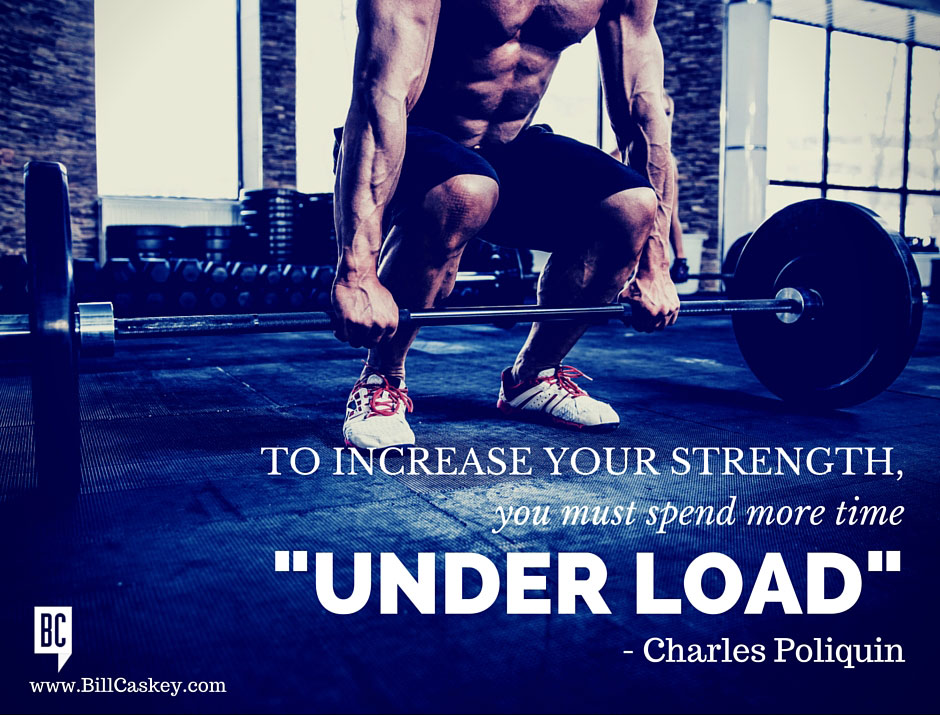Working Under Load. The Secret To Your Success.
Charles Poliquin is a weight-lifting coach. He’s the guy your trainer looks to for advice on proper technique, cadences and exercises. He was on Tim Ferriss’s podcast (Click Here To Listen) last week and he said something I thought was fascinating. Simple, but fascinating.

He said if you really want to increase your strength, you must spend more time “under load.”
In his world, under load means to stress the muscle throughout the entire weight bearing exercise. In other words, do the reps slow, stopping at the top and bottom for a few seconds. So instead of doing 20 curls in 35 seconds, you do 20 in 2 minutes.
More time under load = more strength.
In our world, “under load” leads to strength as well.
Last week I was in the southeast for a meeting with 10 sales leaders. We went under load for about 4 hours. Meaning, I did not merely lecture them… but gave them exercises to do in the moment. We role-played client situations and sales person situations.
Sales leaders listen up!
When you run sales meetings, put your team “under load.” Practice the techniques that I give you here on this site, on The Advanced Selling Podcast (www.advancedsellingpodcast.com) and the hundreds of videos I’ve given you (www.youtube.com/caskeyone).
Practice = Under Load. Under Load = Success.
If one of the people says, ‘I have a meeting tomorrow with a prospect.” Then, you say, “Great, let’s hear how you’re going to begin the meeting.” Role Play. Or, as we say, Practice.
The more time you spend ‘under load,’ the better your skills will be when you eventually get in front of the prospect. No short cuts. No “I don’t need practice. It’ll all work out.”
For sales people, you can go “under load” too. Just practice into a microphone what you’re going to say when starting a meeting. Or, if you have a delicate situation with a client, practice that, too. The more pressure and stress the better.
You see, I want you to be strong when you’re in the market. And the way to do that is to increase the practice time when you’re ‘under load.’



